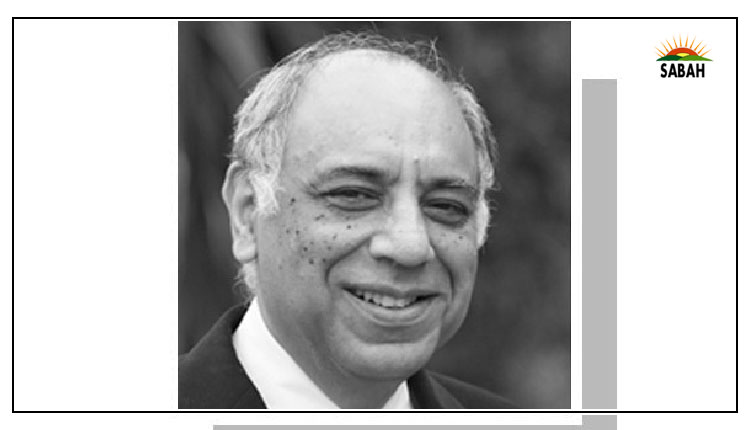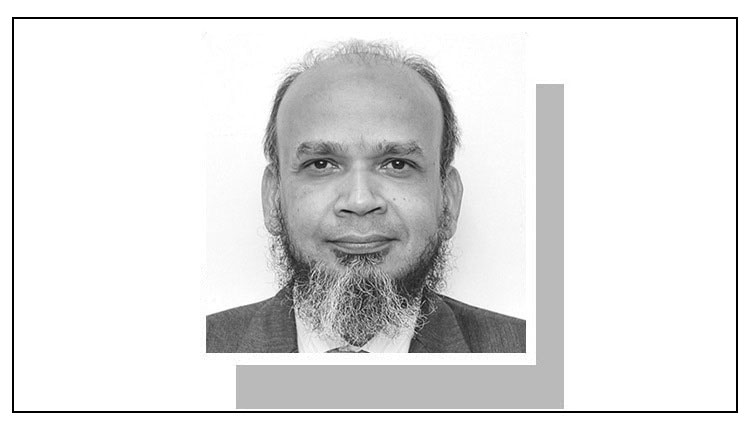SC refuses to suspend its judgment which led to sacking of nearly 17,000 govt employees
ISLAMABAD, Nov 11 (SABAH): The Supreme Court of Pakistan on Thursday refused to suspend its judgment which led to the sacking of nearly 17,000 government employees.
A three-judge bench of the apex court, led by Justice Umar Ata Bandial and comprising Justices Qazi Muhammad Amin Ahmed and Aminuddin Khan, heard review petitions filed by the government and sacked employees against the court judgment striking down the Sacked Employees (Reinstatement) Ordinance Act, 2010.
The applicants have made The Secretary Establishment Division and others party in the review petitions. The hearing on the review petitions was conducted by the bench at 1:00 PM on Thursday.
However, the SC restrained the government from vacating government employees from residences and also issued notices to opposite parties in the petitions.
“We are not inclined to suspend the judgment,” said Justice Bandial after consulting with other members of the bench.
Justice Qazi Muhammad Amin Ahmed, who was part of the original bench, noted that Pakistan has a large population. “There is a serious issue of transparency and merit in this case as well. We are sitting to hear review petitions with an open heart,” the judge remarked.
Attorney General for Pakistan Barrister Khalid Jawed Khan appeared on behalf of the government and raised points for the review of the judgment.
The AGP said that no notice was given to him for legal assistance in the matter and also referred to several judgments, wherein it was held that issuance of a notice to the AGP was mandatory in such cases.
He also objected that no notice was given to affected employees during the hearing of the main case. The top court adjourned the proceedings until November 29.
Earlier, the matter was fixed on October 14 but it could not be heard because of the unavailability of the bench.
Justice Mushir Alam, who authored the judgment in August, had already retired. The SC had struck down the sacked employees law, ruling that the legislation enacted by the then PPP government did not fulfil the criteria laid down by the apex court in numerous cases.
On appeals against various verdicts of the high courts, a three-member bench, comprising Justice Alam, Justice Qazi Muhammad Amin Ahmed and Justice Aminud Din Khan, had directed that all benefits accrued to the beneficiaries of the Act be stopped with immediate effect.
“The Act has extended the undue advantage to a certain class of citizens thereby violating the fundamental rights under Article 4, 9, and 25 of the employees in the Service of Pakistan and being void under Article 8 of the Constitution,” read the judgment.
“While the Act of 2010 intends for reinstatement, the jurisprudence of this Court has clearly laid down the nuances entailed by the term ‘reinstatement’. The Act of 2010 does not fulfill the criteria laid down by this Court in numerous cases,” it added.
“Therefore, in light of the discussion above, the Act of 2010 is hereby declared to be ultra vires of the Constitution. The effect of such a declaration is that any/all the benefits accrued to the beneficiaries are to be ceased with immediate effect.”
Additional Attorney General Sajid Ilyas had filed a review petition against the top court’s August 19 verdict.
The review petition stated that the court passed the judgment without issuing a formal notice under order XXVIIA CPC and hearing the attorney general for Pakistan, particularly with reference to the constitutionality of the Act.
It added that the employees who had been conferred benefits under the Act, and who numbered in thousands, were neither heard nor provided an opportunity of hearing before the adverse action was taken against them.
The petition further stated that the judgment under review was passed ignoring the principle of natural justice and liable to be reviewed and recalled on this ground alone.
The plea further highlighted that the impugned judgment was reserved on December 16, 2019 but was not announced until August 17, 2021, after a lapse of 20 months, which was against the set principles of due process.
It was also submitted that the legitimate rights and interests of the existing employees, including their seniority positions and promotion prospects, could have been protected without declaring the entire act as ultra vires the Constitution.












